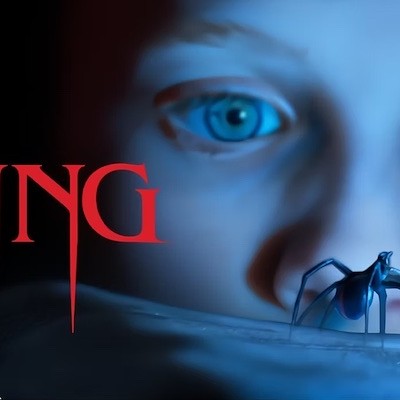Last night, Houston Cinema Arts Society held a special VIP event to kick off its upcoming film festival in November, and it featured a special advance screening of Tyler Perry's For Colored Girls, which officially opens on November 5. The film is an adaptation of Ntozake Shange's landmark "choreopoem" For Colored Girls Who Have Considered Suicide When the Rainbow is Enuf, first-performed in California in 1975, and on Broadway the following year.
The movie has already generated controversy, particularly among black women, some of whom think Perry will mishandle the source material. The play is essentially a series of poems spoken by women. They describe the search for love and identity, while coping with disenfranchisement, abandonment, abortion and rape. The work is considered a benchmark of African-American Theater.
Art Attack saw an advance screening on Monday and had a chance to talk with the lovely Loretta Devine (a Houston native and graduate of the University of Houston), who gives one of the film's most powerful performances. For her, making the film was like getting a second chance. "I auditioned for Colored Girls [in 1975] and I got it--it was my last year in college, and I had to make a choice," she recalled. "They wouldn't let me out so I stayed in and missed it. So now I get to do it for a movie."
Devine affirmed that actresses hold heavy esteem for the play. "It was pre-Waiting to Exhale; there was nothing like it at that time. It was dance and poetry and a mixture of cultures. Great expectations are put upon it I think. When I first hit New York, all the hot 'it-girls' were in it. It's been done all over the world. If you go to YouTube, you can see a million girls do it."
Perry, known for his popular morality plays and films featuring his wild "Madea" character, has been criticized for perpetuating black stereotypes and cashing in on mediocre, formula material pitched to a ravenous fanbase. That fanbase is largely black women, some of whom are his harshest critics.
Last week, the website Clutch, which is devoted to "ushering in the new era for young, contemporary women of color," published a letter Perry sent out to his critics who think he isn't fit to helm an adaptation of Colored Girls. Some excerpts:
"There has been a lot of Internet chatter about me doing this film. I've heard everything from, 'I'm glad he's doing it!', to 'How dare he touch this!'""If you know anything about the book or play, FOR COLORED GIRLS WHO HAVE CONSIDERED SUICIDE WHEN THE RAINBOW IS ENUF, which is what my film is based on, then you know that it is one of the most powerful literary works of this century. But, if you know it, you are also thinking like I was, 'How can I make this into a movie?'"
"After reading the play a thousand times and listening to these poems a million times, it hit me. There was only one way to approach it. So what I did was, I put these characters in the situations around the poems, so that they could speak the dialogue of the book without it sounding like a poem. And I have to tell you, I wasn't sure that it could be done. But, after listening to Phylicia Rashad, Thandie Newton, Kerry Washington, Macy Gray, Kimberly Elise, Tessa Thompson, Whoopi Goldberg, Loretta Devine, Anika Noni Rose and Janet Jackson say these words it was awesomely seemless [sic]."
"This movie is powerful. It is incredible. The performances in it are astonishing, but most of all this film will leave you lifted."
"I don't know if you know this either, but never in the history of a feature film has there been an ensemble of this many black women. That alone is worth celebrating. I hope you are planning to see it on November 5th."
"By the way, you don't have to be a colored girl to be able to relate to and enjoy this movie."
Clutch, which has not been shy about declaring itself squarely in the anti-Perry camp, insinuating that Perry's success could "single-handedly plunge all of black culture backwards permanently to the coon times," called the letter "half promo, and half self-induced horn tooting."
But perhaps the film is a big risk for Perry. He could wind up alienating himself from fans that have deep respect for Shange's play in its original form.
For Devine, it was an opportunity she couldn't pass up. "I knew, even before I was cast, that there's such a huge crop of black actresses that have not done anything like this, and it's a tremendous thing to get a chance to do," she says. "Because I did Waiting to Exhale, I know what it feels like to have a story around you. Because a lot of times you just get a chance to do a support role. I do a lot of character roles; I don't get leads that often. So this was an extraordinary opportunity for me, and I took it as that."
She also wishes people would approach the film without a predisposition to expect a typical Perry work. "If you took the Tyler Perry factor out ... I think a lot of it is because of what he's done, people are going to judge it - not on what the movie is," she says. "If it was some unknown director, I don't think there would be a question of the value of it, but because you already have an opinion of him, you put that opinion on this. That's the way things are."
It's possible that the film will work best with viewers unfamiliar with the source material. Perry has taken poetry that was written for live performance and constructed a present-day plot around it, with contemporary dialogue. The source material asserts itself in key moments, usually in close-up on the actress's face. It's experimental and different from any other Perry film. With respect to the producers' request that no reviews be published until closer to the official opening, Art Attack will refrain from weighing in on whether the experiment succeeds or not.
For Devine, it was unquestionably a success. "I thought Tyler was an incredible director. I don't know what people will try to compare it to, because there are always comparisons made about everything, but I feel it stands on its own. I think the colors ... the women are beautiful. It reminded me of Waiting to Exhale in that the women were photographed so beautifully. And how it transitions--you never know what you're going to see next. If you're totally unfamiliar with the piece, I think it'll really grip you; you have no idea what's coming."





